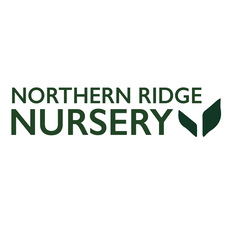Top 10 Native Plants to Boost Your Garden's Eco-Friendliness
Enhancing your garden's sustainability isn’t just a trend but a contribution to local wildlife and the planet. Incorporating native plants into your garden is an excellent way to achieve this. Native plants are adapted to the local climate and soil, requiring less water and fewer chemicals. They also provide essential habitat for local wildlife. Here, we explore the top 10 native plants that are not only beautiful but are a boon for your garden's eco-friendliness.
Why Choose Native Plants?
Before diving into our list, it’s crucial to understand why native plants are beneficial:
- Lower Maintenance: Adapted to their natural environment, native plants require less water and minimal care once established.
- Pest Resistance: They are more resistant to local pests and diseases, reducing the need for chemical interventions.
- Support Local Wildlife: Native plants provide shelter and food for local wildlife, promoting Biodiversity.
- Soil Health: They play a crucial role in soil conservation, preventing erosion and improving soil health.
Top 10 Native Plants for Your Garden
1. Butterfly Milkweed (Asclepias tuberosa)
Perfect for attracting monarch butterflies, this vibrant orange-blossomed plant tolerates drought well and thrives in full sun.
2. Blue Wild Indigo (Baptisia australis)
With striking blue flowers, this robust perennial adds a splash of color and is known for its ease of care.
3. Switch Grass (Panicum virgatum)
Known for its adaptability, this grass helps stabilize soil and provides a lush backdrop for more colorful plantings.
4. American Elderberry (Sambucus canadensis)
Great for wildlife and human consumption alike, elderberries are perfect for making jams and wines.
5. New England Aster (Symphyotrichum novae-angliae)
This late bloomer brings vibrant purples and pinks to your garden in the fall and is a magnet for pollinators.
6. Joe-Pye Weed (Eutrochium purpureum)
With its height and handsome purple blooms, Joe-Pye Weed is a favorite among butterfly enthusiasts.
7. Serviceberry (Amelanchier)
Serviceberries offer year-round interest with their white spring flowers, summer berries, and brilliant fall foliage.
8. Purple Coneflower (Echinacea purpurea)
Known for its medicinal properties and striking appearance, coneflowers are a staple in any eco-friendly garden.
9. Oakleaf Hydrangea (Hydrangea quercifolia)
With its distinctive foliage and large flowers, this hydrangea is a beautiful addition that requires minimal upkeep.
10. Wild Bergamot (Monarda fistulosa)
Known for its aromatic leaves and attractive flowers, Wild Bergamot is highly attractive to bees and butterflies.
Integrating Native Plants into Your Garden
Now that you know which plants to consider, here's how to integrate them into your garden seamlessly:
- Assess Your Space: Consider the climate, soil type, and sunlight in your garden to choose appropriate native plants.
- Plan Your Design: Map out where each plant will go based on its size at maturity, bloom time, and color to create a cohesive look.
- Pair With Non-Natives Carefully: If combining with non-native plants, ensure they have similar needs in terms of water, soil, and sunlight.
- Allow Room to Grow: Native plants can spread considerably and may require more space over time.










